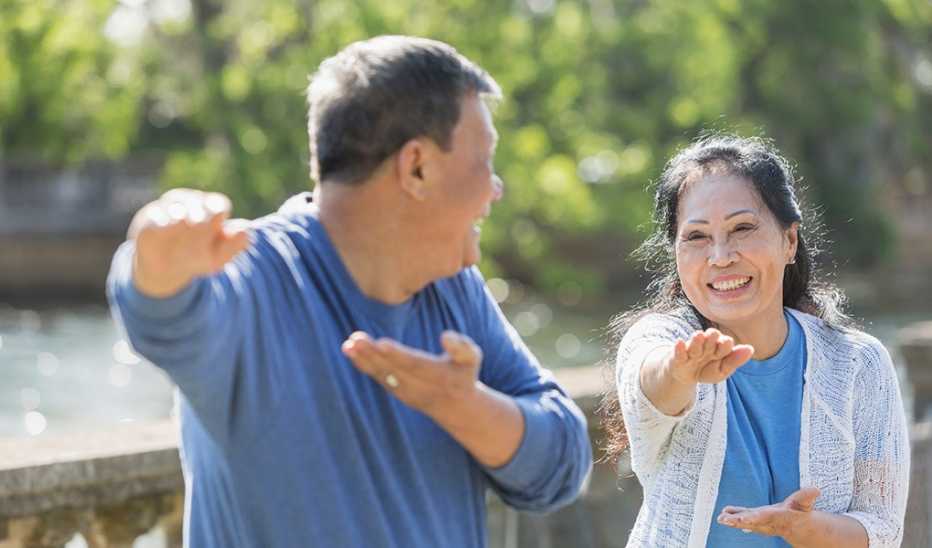Challenges


Quick Win
This ancient Chinese martial art, sometimes referred to as “moving meditation,” combines slow, precise movements, breathing and mental focus. It may help improve balance, brain and heart health, and overall well-being.
Try This Today
- Find a class. Look for beginner’s tai chi classes at your local recreation center, YMCA, JCC or senior center, or find a live online class through the Tai Chi Foundation.
- Know the forms. There are five primary styles of tai chi, known as forms, based on the names of the people who developed them long ago: Chen, Yang, Wu, Sun and Hao. All forms are based on the same principles and movements, but the speed and positioning can vary. Yang style, characterized by large, slow movements, is the most popular form practiced today.
- Be patient. As a beginner, start by focusing on the basic principles and techniques — like breathing, shifting weight and alignment — and learning simple movements. You’ll use these as building blocks to more complex sequences.
- Make it a habit. Like all forms of exercise and relaxation practices, consistency is key. Practice at the same time each day or commit to an ongoing class.
Why
A growing body of evidence suggests that practicing tai chi may have an array of health benefits. For example, it may improve balance, reduce risk of falls, reduce some types of pain and support heart health, according to the National Center for Complementary and Integrative Health. In a study of 34 people 50 and older with mild cognitive impairment, those who did tai chi three times a week showed improved cognitive function at 12 and 24 weeks, as reported in 2022 in Scientific Reports.










More From Staying Sharp
You Are Not Your Thoughts
How mindfulness lights up parts of our brains that aren’t normally activatedYoga With Denise Austin: Reverse Warrior Pose
This pose will strengthen and stretch your arms, torso, hips, groin and legs
Link Between Aerobic Exercise and Memory
Support brain function and overall cognitive well-being with regular aerobic exercise